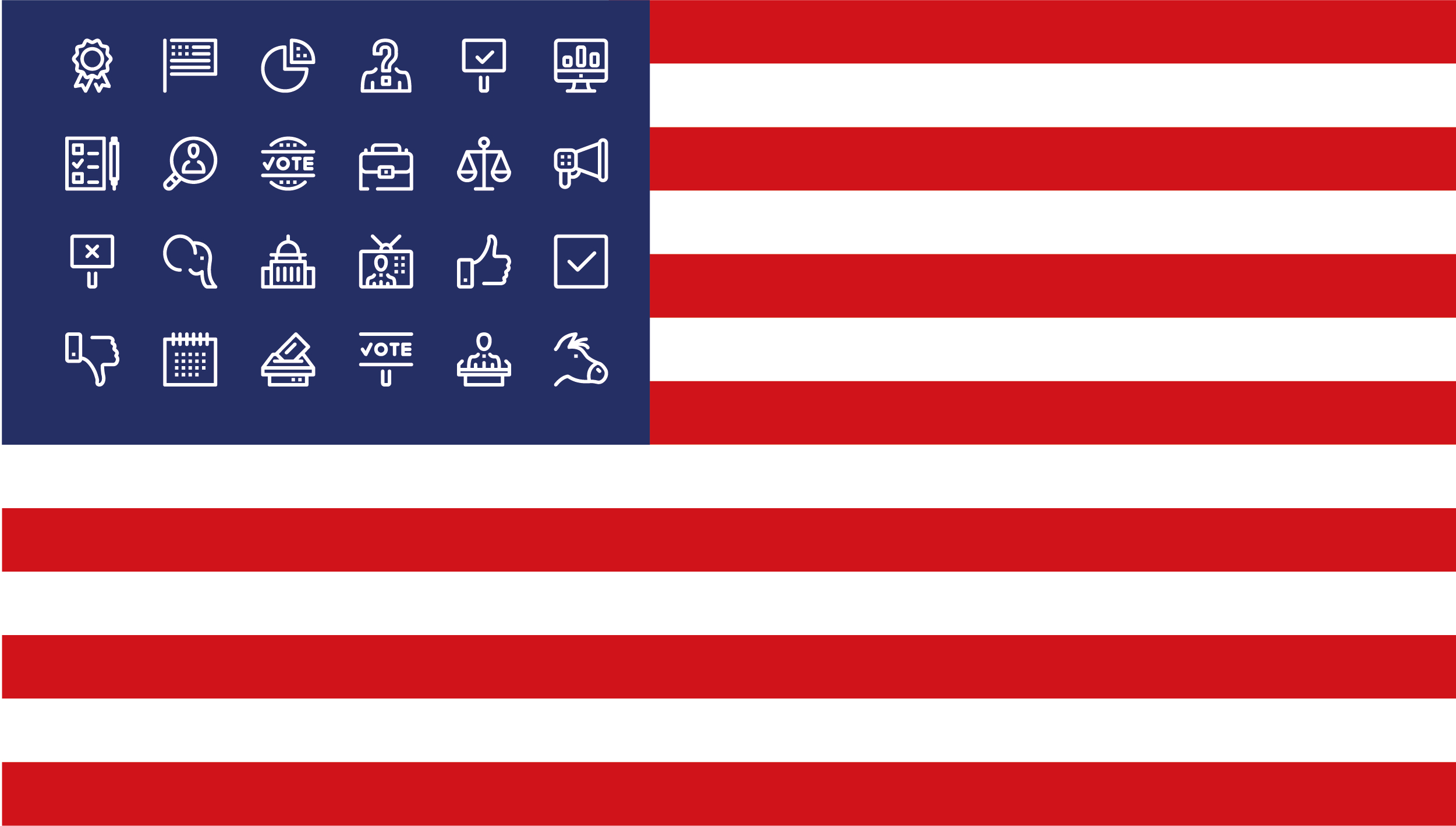Funding will help universities, think tanks and advocacy groups fill gaps in research needed by federal policymakers and other decision-makers
Contact: Lauren Dickinson, Communications Officer, John S. and James L. Knight Foundation, 305.908.2694, [email protected]
MIAMI — Nov. 3, 2019 —The John S. and James L. Knight Foundation has announced more than $3.5 million in funding to support new, independent research into issues at the forefront of national tech policy debates. Twenty-two universities, think tanks and advocacy organizations will study diverse, timely topics including content moderation by social media companies, antitrust enforcement in big tech and the pervasive problem of disinformation online.
The research, intended for near-term application, will help meet the urgent needs of federal lawmakers and other decision-makers as they shape the future of the internet, as the impact of technology on our society and democracy becomes ever more significant.
“These issues are moving faster than we can evaluate and analyze them. We need to close the knowledge gap, if our society is going to make smart decisions about how to ensure technology strengthens democracy rather than weakening it,” said Sam Gill, vice president at Knight Foundation. “Knight is investing in and supporting this research to ensure that a diverse range of views and a body of real evidence informs urgent policy debates. How we answer the questions of today will shape the American democracy of tomorrow.”
The institutions receiving new Knight support were selected through an open funding opportunity to expand fundamental research on the norms, rights and responsibilities that govern digital services, in particular, social media. The funding opportunity is ongoing.
Research topics include the responsibilities of social media companies and digital service providers with regard to how they moderate, police and present content that increasingly informs our national civic conversation, and issues of antitrust and competition in the online arena. Both reflect ongoing debates on Capitol Hill and critical conversations in Silicon Valley.
In recent months, the U.S. House of Representatives and Senate have held hearings on questions of market power, antitrust, technology companies’ use of algorithms and their accountability in enabling online extremism and violence. This has prompted policymakers to consider whether, and to what extent, to change Section 230 of the Communications Decency Act, which shields tech companies from legal liability over content posted by their users.
The Federal Trade Commission and Department of Justice have separate ongoing investigations into the competition and business practices of several tech companies. Additionally, almost all state attorneys general are investigating both Google and Facebook for anti-competitive behavior. And, last week, Facebook CEO Mark Zuckerberg faced intense scrutiny by members of the House Financial Services Committee regarding the company’s cryptocurrency plans and its role in society at large.
The investments are part of Knight’s recently announced $50 million commitment to support research on how technology is transforming our democracy and the way in which people are informed in the digital age. The foundation committed nearly $45 million earlier this year to support long-term research at American universities, research institutions and think tanks.
The full list of Knight’s new research investments includes:
American Antitrust Institute ($100,000): To support new research that enables better understanding of the reach, capability and effectiveness of antitrust enforcement to promote competition in digital markets and to develop approaches to encourage more vigorous application of antitrust laws.
Led by: Diana Moss
American Enterprise Institute ($400,000): To support a new digital governance project at AEI aimed at helping policymakers understand the key questions and issues at the intersection of technology and public policy.
Led by: Jim Harper, Yuval Levin, Shane Tews, Adam White
Berkeley Center for Law and Technology ($40,000): To support a symposium at the UC Berkeley School of Law on the roles of technology in internet law and policy that will culminate in a published volume of the Berkeley Technology Law Journal, as well as an accompanying seminar and workshop.
Led by: Deirdre Mulligan
Berkman Klein Center for Internet & Society at Harvard University ($250,000): To support the launch of a refined and expanded version of the Assembly initiative focused on online disinformation.
Led by: Jonathan Zittrain
Duke University Center on Law & Tech ($75,000): To support research that explores the applicability of the principles and priorities of traditional media and public utility regulation to the regulatory framework applied to social media platforms and associated data.
Led by: Philip M. Napoli and Jeff Ward
Economic Security Project ($250,000): To support new research on the impacts of economic concentration among technology companies.
Led by: Natalie Foster, Chris Hughes, Taylor Jo Isenberg and Dorian Warren
German Marshall Fund ($175,000): To support original legal and policy research by a collaborative network of senior policy thought-leaders, researchers and stakeholders to develop practical policy responses to major challenges that have emerged in the digital economy.
Led by: Karen Kornbluh
Kate Klonick, St. John’s University Law School ($40,000): To support research on emergent legal implications of digital platforms.
Led by: Kate Klonick
Lincoln Network ($250,000): To support the Lincoln Network’s annual “Reboot American Innovation” conference in San Francisco and aligned convenings in Washington, DC, and the Bay Area on innovation policy and governance, as well as the launch of the innovators fellowship.
Led by: Zach Graves and Dan Lips
New York University Stern Center for Business and Human Rights ($100,000): To support the development of an empirical study of content moderation on Facebook, Twitter and YouTube and its role in their business models, along with a set of practical recommendations for its improvement, particularly focusing on the current system of outsourcing content moderators.
Led by: Paul Barrett and Michael Posner
Public Knowledge ($250,000): To develop a proposal for a market-based mechanism to improve online information that would be funded by dominant digital platforms.
Led by: Gene Kimmelman
The Rutgers Institute for Information Policy & Law at Rutgers Law School ($150,000): To support the development of research and policy proposals regarding speech on digital platforms, with a focus on transparency and the First Amendment and global speech implications of platform governance around content moderation, amplification and monetization.
Led by: Ellen P. Goodman
Santa Clara University School of Law ($150,000): To support the continued development of a body of research and policy proposals with regard to intermediary liability for content on digital platforms.
Led by: Eric Goldman
Shorenstein Center on Media, Politics and Public Policy at Harvard Kennedy School ($100,000): To support independent research and policy proposals around privacy, competition among technology companies and government oversight of the internet.
Led by: Nancy Gibbs, Gene Kimmelman, Phil Verveer and Tom Wheeler
Stanford University ($150,000): To support applied research and pedagogy on questions of technology, democracy and governance, specifically engaging with the critical questions surrounding content moderation, antitrust and competition policy.
Led by: David Freeman Engstrom, Francis Fukuyama and Daphne Keller
UCLA Center for Critical Internet Inquiry ($125,000): To support research on content moderation, discrimination and governance of the commercial internet from the perspective of marginalized and underrepresented populations.
Led by: Safiya Umoja Noble and Sarah T. Roberts
University of California, Irvine Law School ($170,000): To support two research projects on the destabilizing effects of digital speech on American democracy and models of self-regulation and multi-stakeholder governance of content moderation on digital platforms.
Led by: Richard Hasen and David Kaye
University of Iowa Law School ($100,000): To support legal research that applies principles from constitutional law and institutional political science to the challenges of platform governance.
Led by: Paul Gowder
University of Kentucky College of Law/Gatton College of Business and Economics ($100,000): To support novel research that applies distributive justice theory to questions of internet governance.
Led by: Ramsi Woodcock
University of Pennsylvania Law School Center for Technology, Innovation and Competition ($350,000): To provide general support for the Center for Technology, Innovation and Competition for research and policy development on digital vertical integration and the competitive advantages of scale in the digital economy.
Led by: Rakesh Vohra and Christopher Yoo
Utah State University Center for Growth and Opportunity ($250,000): To support the application of experimental economics as a tool for policy analysis to understand how content moderation policies are affecting user behavior and what responsibilities platforms have moderating misinformation.
Led by: Christopher Koopman, Lucas Rentschler and Vernon Smith
Yale University ($50,000): To support theoretical research on economically coherent regulatory solutions for digital platforms that protect consumers and local content markets.
Led by: Dirk Bergemann
About the John S. and James L. Knight Foundation
Knight Foundation is a national foundation with strong local roots. We invest in journalism, in the arts, and in the success of cities where brothers John S. and James L. Knight once published newspapers. Our goal is to foster informed and engaged communities, which we believe are essential for a healthy democracy. For more, visit kf.org.
-
Journalism / Article
-
Journalism / Press Release
-
Journalism / Press Release
-
Journalism / Article
-
Community Impact / Article
-






